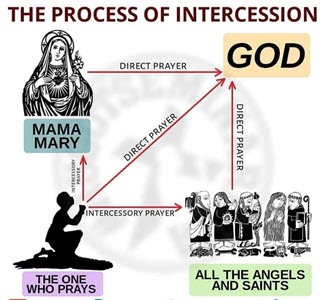Does prayer work as promised, or is it just private meditation?
The church teaches that in times of need, a personal communication with God is available.
Prayer is an important part of worship as it provides the opportunity to communicate with God. The Catholic Catechism states, Prayer is the raising of one’s heart and mind to God or the requesting of good things from God (Catholic Catechism 2259). This shows that prayer is considered a two-way process.
The problem with the idea that one can ask God to change things is profound. Having the foundation that God is all knowing and all powerful, it makes sense that God could change the order of things in response to prayer, but in doing so, he undermines his own authority. Prayer is effectively saying ‘God, I know you know everything, you have arranged the order of humanity to serve your needs, and that you have a plan. But I have a better one!’
Methodical Clinical Testing of the Efficacy of Prayer
Traditional religious doctrine is that God ‘moves in mysterious ways’, that ‘God’s will is unknowable’, and that He will simply answer ‘Yes’, ‘No’ or ‘Not Now’ to prayers for benevolence, for healing, for success, or for the well-being of others.
Is this prayer effective? Has the power of prayer even been tested? Yes, it has!
Intercessory prayer is widely believed by those of faith in most religions to influence recovery from illness, but claims of such benefits are not supported by well-controlled clinical trials. It was not until the 2006 STEP Study (Study of the Therapeutic Effects of Intercessory Prayer) that the question of whether there was a difference between prayer itself, or knowledge/certainty on behalf of the intended recipient of God’s blessing was addressed by researchers.
(Intercession or intercessory prayer is the act of praying to a deity on behalf of others, or asking a saint in heaven to pray on behalf of oneself or for others.)

The 2006 study involved almost 1800 participant patients in six US hospitals equally divided into three groups; Group 1 received intercessory prayer after being informed that they may or may not receive prayer; Group 2 did not receive intercessory prayer also after being informed that they may or may not receive prayer; and Group 3 received intercessory prayer after being informed they would receive prayer. The researchers evaluated whether either receiving intercessory prayer or being certain of receiving intercessory prayer was associated with uncomplicated recovery after coronary artery bypass graft (CABG) surgery.
The researchers found no significant effect of prayer on patients’ recovery after heart surgery.
Interestingly, they found what while Intercessory prayer itself had no effect on complication-free recovery from CABG, certainty of receiving intercessory prayer was associated with a higher incidence of complications! So the people who knew they were being prayed for were worse off!
One can only conclude that prayer is just one of many promises of religion that give one a nice warm fuzzy feeling, but just a moment’s consideration reveals as a false claim.



“As long as there are tests, there will be prayers in schools.”
Anon


